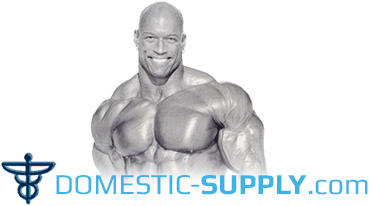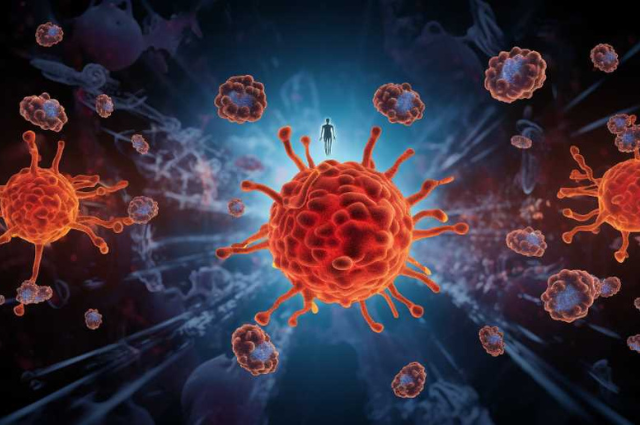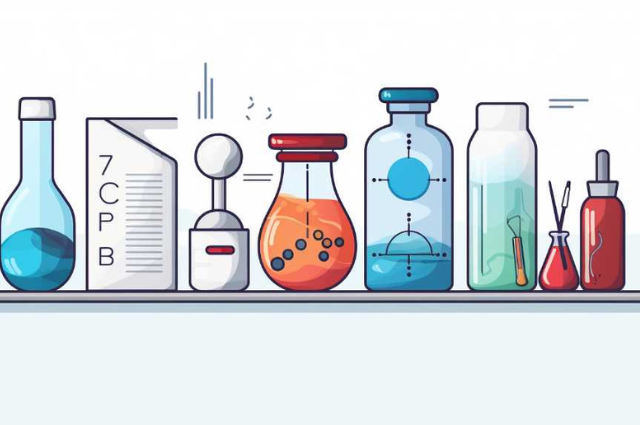8 Best Insights Into Steroid Abuse Health Effects
This comprehensive guide delves into the eight most significant health implications of steroid abuse. Harnessing a wealth of medical research and clinical evidence, it provides a detailed examination of the risks associated with the misuse of these potent drugs. Topics discussed include the negative effects on cardiovascular health, mental well-being, liver function, skin health, and kidney disease. Additionally, the guide explores the hormonal imbalances and immune system dysfunctions induced by steroids. Our aim is to provide readers with a well-rounded understanding of the grave health hazards posed by steroid abuse.
Key Takeaways
- Steroid abuse can have serious health effects, including liver damage, cardiovascular problems, mental health disorders, and kidney disease.
- Skin disorders are common among steroid abusers, including acne, seborrhea, skin thinning, stretch marks, and pigmentation changes, which can significantly impact an individual's quality of life.
- Steroid abuse can cause hormonal imbalances, leading to testicular shrinkage and infertility in men, and menstrual irregularities and infertility in women, as well as psychological effects such as mood swings, aggression, depression, and anxiety.
- Steroid abuse weakens the immune system, reducing white blood cell production, disrupting inflammatory responses, exacerbating autoimmune disorders, and increasing the risk of serious infections.
Understanding Steroid Abuse
A significant number of individuals worldwide engage in steroid abuse, a phenomenon marked by the misuse of anabolic-androgenic steroids (AAS) to enhance athletic performance or physical appearance. This misuse can have devastating health effects, particularly when these substances are taken in doses exceeding the therapeutic range.
Analyzing the root cause of this phenomenon, it becomes clear that societal pressures and the desire for physical perfection can lead individuals down this perilous path. Steroid abuse is often linked to body dysmorphia, a psychological disorder where an individual is excessively worried about perceived defects in their physical appearance. This obsession can drive them to use AAS, with the belief that it will help them achieve their ideal body image.
Scientifically, anabolic-androgenic steroids work by mimicking the effects of testosterone, a hormone that promotes muscle growth and development. When taken in high doses, these substances can cause a variety of health issues, including liver damage, cardiovascular problems, and mental health disorders.
Moreover, the misuse of AAS often leads to dependency, a condition characterized by the body's increased tolerance to the substance, requiring the user to consume more to achieve the same effects. This escalates the risk of severe health complications, as the user continually exposes their body to harmful substances.
Steroids and Cardiovascular Risks
The significant cardiovascular risks associated with steroid abuse present a serious concern for both medical professionals and individuals engaged in this harmful practice. Steroids, or more specifically anabolic-androgenic steroids (AAS), mimic the effects of testosterone, promoting muscle growth and strength. However, their misuse can lead to a host of cardiovascular issues.
A key risk factor is the development of atherosclerosis, a condition characterized by the hardening and narrowing of the arteries. Steroids can increase low-density lipoprotein (LDL) cholesterol, the 'bad' cholesterol, and decrease high-density lipoprotein (HDL) cholesterol, the 'good' cholesterol. This imbalance can lead to fatty deposits building up in the arteries, impeding blood flow and potentially leading to heart attacks or strokes.
Steroid misuse can also lead to myocardial hypertrophy, an abnormal enlargement of the heart's muscle tissue, reducing its efficiency. Studies have shown that AAS users have significantly thicker left ventricle walls, indicative of this condition. This can lead to arrhythmias, heart failure, and sudden cardiac death.
Moreover, steroid abuse can induce hypertension, a primary risk factor for many forms of heart disease. Elevated blood pressure can damage arteries, exacerbating the effects of atherosclerosis, and strain the heart, increasing the likelihood of heart failure.
The Impact on Mental Health
Beyond the physical damage, steroid abuse also poses serious threats to mental health, with potential for severe psychological disturbances and mood disorders. Steroids impact the brain's limbic system, responsible for controlling mood, leading to alterations in behavior and personality. This impact is often amplified by prolonged use or higher doses of steroids.
Steroid abuse can trigger a range of psychological effects, which can be broadly categorized into two main areas:
- Mood and Behaviour Disorders:
- Depression: This is a common side effect of steroid withdrawal. It can range from mild, temporary episodes to severe, lasting depression.
- Mania: Steroid users can experience episodes of manic behavior where they feel invincibly high, or intensely irritable and aggressive.
- Cognitive Impairments:
- Impaired Judgment: Chronic steroid use can lead to clouded thinking, making users take decisions they wouldn't normally consider.
- Memory Issues: Steroid abuse can lead to short-term memory problems and difficulties in creating new memories.
Research indicates that these psychological effects may not be temporary and could potentially result in long-term mental health problems. For instance, studies have found that steroid users are more likely to suffer from anxiety and depression, even years after stopping steroid use.
Steroids: A Threat to Liver
Moving on to the physiological implications, steroid abuse presents a significant threat to liver health, often resulting in severe, irreversible damage. Steroids, specifically anabolic-androgenic steroids (AAS), are metabolized primarily in the liver. This process places excessive stress on the hepatic cells, leading to a condition known as cholestasis. This state inhibits the flow of bile from the liver, causing jaundice, itchiness, and potentially cirrhosis.
The liver's role in detoxification and metabolism makes it particularly susceptible to the toxic effects of AAS. Research reveals the occurrence of hepatocellular adenomas and carcinomas in AAS users, a clear sign of steroid-induced hepatotoxicity. Moreover, studies indicate that long-term AAS use can lead to liver fibrosis, a condition characterized by the excessive accumulation of extracellular matrix proteins, which results in scarring and functional impairment of the liver.
An additional concern is the potential development of peliosis hepatis, a rare condition characterized by blood-filled cysts within the liver. This condition, while rare, is potentially fatal if the cysts rupture, leading to internal bleeding.
Furthermore, AAS abuse may also exacerbate the risk of liver diseases like hepatitis. As most AAS are orally administered, they undergo first-pass metabolism in the liver, increasing the load on this vital organ and heightening the risk of liver injury.
Steroids and Skin Complications
Steroid-induced dermatological complications represent another alarming consequence of anabolic-androgenic steroids (AAS) abuse, exhibiting a host of skin conditions ranging from acne and seborrhea to striae and skin thinning. These side effects are not only uncomfortable but can also lead to severe psychological distress due to their impact on the users' physical appearance.
The skin disorders associated with steroid abuse can be categorized into two main subsections:
- Immediate complications:
- Acne and Seborrhea: Steroids can stimulate the sebaceous glands, leading to excessive oil production that induces acne and seborrhea. This overproduction can also result in oily skin and the development of cysts.
- Skin Thinning: Chronic steroid use may cause the skin to thin and become fragile, leading to easy bruising and delayed wound healing.
- Long-term complications:
- Striae: Also known as stretch marks, striae are common in steroid users. They are caused by the rapid expansion of the skin due to muscle gain or weight gain, combined with the skin thinning effect of steroids.
- Pigmentation Changes: Chronic AAS use can lead to alterations in skin pigmentation, leading to uneven skin tone or the development of dark patches.
These skin complications, while often dismissed as superficial, can significantly affect an individual's quality of life and self-esteem. Further, these dermatological conditions are outward manifestations of the internal harm caused by steroids, serving as visual reminders of the drug's damaging effects on the body's overall health. As such, it is crucial to include skin complications in the comprehensive understanding and discussion of AAS abuse consequences.
The Connection to Kidney Disease
Another significant health concern associated with prolonged steroid abuse is the potential risk of kidney disease. Steroids, particularly anabolic-androgenic steroids (AASs), are known to have substantial effects on kidney function, leading to varying degrees of renal impairment.
The underlying pathophysiology revolves around steroid-induced glomerulosclerosis, a condition characterized by the scarring or hardening of the glomeruli in the kidneys. This happens when the steroids cause an overproduction of certain proteins in the kidneys, leading to a buildup of scar tissue that ultimately impairs kidney function.
In a study published in the Journal of the American Society of Nephrology, it was observed that bodybuilders who abused anabolic steroids developed protein leakage into the urine and severe reductions in kidney function, often progressing to end-stage kidney disease. These findings underscore the potential severity of kidney complications associated with steroid abuse.
Moreover, the toxicity of steroids on renal cells has been demonstrated in numerous studies. Steroids can induce oxidative stress in renal cells, leading to their damage and apoptosis. This oxidative stress is mainly due to an imbalance between the production of harmful free radicals and the body's ability to counteract their harmful effects, leading to cellular damage and subsequent renal impairment.
Hormonal Imbalance Caused by Steroids
Understanding the hormonal imbalances caused by steroids is crucial, as these can lead to severe physiological and psychological effects. Steroids, particularly anabolic-androgenic steroids (AAS), mimic the body's natural hormones, disrupting the delicate balance and causing irregularities in hormone production and functionality.
Steroid use can affect numerous hormonal systems, but two primary systems are especially impacted:
- The Hypothalamic-Pituitary-Gonadal (HPG) Axis:
- This axis is responsible for the regulation of reproductive hormones. Steroid use can lead to suppression of gonadotropin-releasing hormone (GnRH), which can result in decreased production of luteinizing hormone (LH) and follicle-stimulating hormone (FSH). This cascading effect can lead to testicular shrinkage and infertility in men, and menstrual irregularities and infertility in women.
- The Hypothalamic-Pituitary-Adrenal (HPA) Axis:
- This axis regulates the body's response to stress by controlling the production and release of cortisol. Chronic steroid use can suppress the production of adrenocorticotropic hormone (ACTH), leading to reduced cortisol levels. This can result in a compromised stress response and can induce symptoms of adrenal insufficiency.
These hormonal imbalances can also lead to various psychological effects such as mood swings, aggression, depression, and anxiety. It's also important to note that the effects of hormonal imbalance may persist even after discontinuation of steroid use, leading to long-term complications. Thus, understanding the adverse effects of steroids on hormonal balance is not just crucial for prevention, but also for the management and treatment of steroid-induced hormonal disorders.
Steroids and Immune System Dysfunction
In addition to causing hormonal imbalances, the misuse of steroids can severely compromise the immune system, leading to increased susceptibility to infections and diseases. Steroids are chemical compounds that mimic the effects of hormones produced naturally in the body. When used appropriately, they can have beneficial effects – such as reducing inflammation or suppressing overactive immune responses. However, the prolonged abuse of anabolic steroids can cause a series of deleterious effects on the immune system.
Firstly, steroid abuse can lead to a decrease in the production of white blood cells, which are crucial in the body's defense against pathogens. This reduction results in an impaired immune response, leaving the body vulnerable to various bacterial, viral, and fungal infections.
Secondly, steroid misuse can cause the immune system's regulatory mechanisms to falter, leading to an imbalance between the pro-inflammatory and anti-inflammatory immune responses. This could potentially exacerbate autoimmune disorders, where the body's immune system mistakenly attacks its own tissues.
Moreover, the long-term abuse of steroids can lead to a state of immunosuppression – where the immune system's ability to fight off infections is significantly weakened. This makes steroid abusers more likely to contract serious infections, including those that are usually easily controlled by a healthy immune system.
Frequently Asked Questions
What Are the Legal Consequences of Steroid Abuse?
The legal consequences of steroid abuse can be severe, encompassing a range of penalties. In many jurisdictions, unauthorized possession or distribution of anabolic steroids is considered a crime, punishable by fines or imprisonment. Furthermore, steroid use can lead to disqualification in professional sports and competitive events. The severity of legal repercussions typically depends on the jurisdiction, the quantity of steroids involved, and whether it's a first-time offense.
How to Support a Loved One Who Is Abusing Steroids?
Supporting a loved one abusing steroids involves education, communication, and professional help. Understanding the harmful effects of steroids aids in conveying the health risks involved. Open, non-judgmental discussions are crucial to encourage them towards quitting. Professional help, such as health care professionals or addiction specialists, is often needed to guide through withdrawal and recovery. It's important to remember that patience and empathy are key, as recovery is a challenging and long process.
How Long Does It Take for the Body to Recover After Quitting Steroids?
The recovery time after quitting steroids can vary depending on several factors, including the duration of use, dosage, and individual health. Generally, the body may start to recover within a few weeks after cessation, but complete recovery can take several months to a year. It's important to seek professional medical guidance during this period as withdrawal symptoms can be severe and potentially life-threatening. Regular monitoring and supportive care are advisable during this time.
Can the Use of Steroids Lead to Addiction?
Yes, the use of steroids can lead to addiction. Steroids have been found to stimulate the reward pathways in the brain, making users susceptible to dependence and withdrawal symptoms. A study published in the Journal of Clinical Psychiatry found that 32% of steroid users met the criteria for substance dependence. Steroid addiction can have serious consequences, including mood swings, fatigue, restlessness, loss of appetite, insomnia, reduced sex drive, and steroid cravings.
Are There Any Safe Alternatives to Steroids for Bodybuilding and Sports Performance?
Yes, there are safe alternatives to steroids for bodybuilding and sports performance. Natural supplements, such as creatine and protein powders, can enhance muscle growth and recovery. Additionally, maintaining a balanced diet, regular strength training, and adequate rest are essential. It's important to note that while these alternatives may not yield results as rapidly as steroids, they do not carry the same health risks and are sustainable in the long term.
Conclusion
In conclusion, steroid abuse poses a multitude of health risks, spanning from cardiovascular complications to mental health disturbances. The detrimental effects on vital organs, such as the liver and kidneys, are significant. Furthermore, the disruption of hormonal balance and impairment of immune system functionality underline the gravity of these consequences. Therefore, it is crucial to comprehend the full breadth of these potential health hazards, highlighting the need for continued research and education on steroid abuse.









